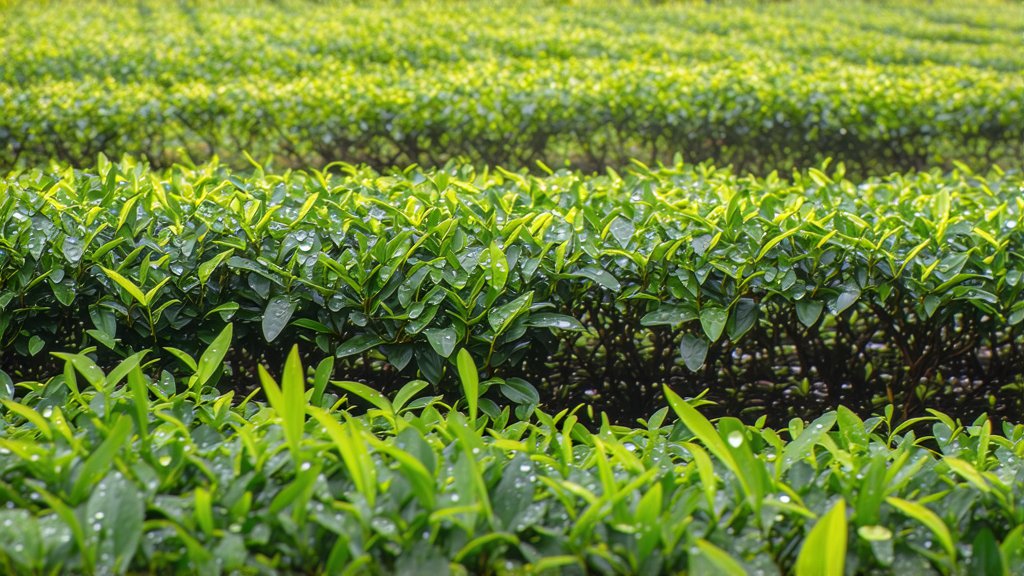
In the vast and diverse landscape of Chinese tea culture, Baihao Yinzhen stands as a testament to nature's artistry and mankind's reverence for simplicity. This exquisite variety of white tea hails from the mountainous regions of Fuding County in Fujian Province, where the cool mists and rich soil conspire to create an environment ideal for cultivating tea of unparalleled quality. With a history steeped in tradition and a flavor profile that whispers of purity, Baihao Yinzhen (literally "Silver Needle" in Mandarin) is not just a beverage but a cultural experience that transcends time.
Historical Context
The origins of white tea can be traced back to ancient China, during the Tang Dynasty (618-907 AD), when it was primarily used for medicinal purposes due to its high antioxidant content. However, it wasn't until the Song Dynasty (960-1279 AD) that white tea began to gain recognition as a luxury item among the imperial court. Baihao Yinzhen, being one of the earliest types of white tea, quickly became associated with elegance and refinement, often reserved for royalty and high-ranking officials. Its production was meticulously controlled, ensuring that only the finest leaves adorned with silvery-white down—the hallmark of Baihao Yinzhen—were plucked by skilled hands.
Varieties within Baihao Yinzhen
Baihao Yinzhen itself is a single-varietal tea, characterized by its use of only the youngest, most tender buds and leaves. These are carefully selected to ensure they possess the characteristic silver hairs that give the tea its name. While there are no official sub-varieties, variations in terroir, altitude, and microclimate can impart subtle differences in flavor and aroma, making each batch unique. Some tea masters also experiment with slight adjustments in processing techniques to further enhance these nuances.
The Art of Baihao Yinzhen Production
The magic of Baihao Yinzhen lies in its minimal processing, which preserves the natural essence of the tea leaf. Here's a glimpse into the meticulous process:
-
Plucking: Only the topmost buds and the first two leaves are handpicked during early spring when they are still covered in fine silver down. This labor-intensive process ensures that only the freshest and most delicate parts of the plant are used.
-
Withering: The freshly picked leaves are spread out thinly on bamboo mats or trays under shade. They are left to wither naturally for 24-48 hours, allowing them to lose moisture slowly while retaining their vital nutrients and flavors.
-
Drying: After withering, the leaves undergo a gentle drying process, either through sun exposure or low-temperature ovens. Sun drying is traditional and preferred for its ability to imbue the tea with a subtle sweetness and complexity.
-
Sorting & Packaging: Once dried, the tea is sorted to remove any imperfections, then packaged carefully to maintain its freshness and prevent contamination.
A Symphony of Senses: Tasting Baihao Yinzhen
To truly appreciate Baihao Yinzhen, one must engage all senses in the tasting ritual:
-
Visual Appeal: Observe the dry leaves, admiring their slender shape and shimmering silver down. When brewed, they unfurl gracefully, revealing a pale golden liquor that glistens like liquid silk.
-
Aroma: Bring the cup close to your nose and inhale deeply. Note the delicate fragrance, often described as a blend of fresh hay, floral notes, and a hint of sweet fruitiness.
-
Flavor Profile: Take a slow sip, allowing the tea to coat your palate. Baihao Yinzhen offers a smooth, velvety texture with a mild sweetness that lingers. Its taste is clean and refreshing, with subtle hints of honey and melon.
-
Aftertaste: Pay attention to the finish. A high-quality Baihao Yinzhen leaves a lasting impression on the palate, with a gentle sweetness that invites you to take another sip.
Health Benefits
Beyond its sensory delights, Baihao Yinzhen boasts numerous health benefits. Rich in antioxidants like catechins and polyphenols, it helps combat free radicals, promoting overall wellness. It is also known for its anti-inflammatory properties, aiding digestion, boosting the immune system, and even contributing to weight management when consumed as part of a balanced diet. Additionally, its low caffeine content makes it an ideal choice for those seeking a calming yet invigorating beverage without the jitters associated with stronger teas or coffee.
In conclusion, Baihao Yinzhen embodies the philosophy of 'less is more,' demonstrating how minimal intervention can result in maximum flavor and health benefits. As you embark on this journey through the world of Chinese white tea, remember that every cup of Baihao Yinzhen is not just a drink; it's a connection to centuries-old traditions, a celebration of nature's bounty, and an invitation to slow down and savor life's simple pleasures.